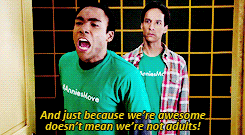There is no hard proof that Zika has caused a wave of severe birth defects in Brazil. But a new study reports the fifth case of a fetus with a shrunken head carrying the virus in its brain.
The alarming uptick in babies born with shrunken heads is indeed linked to the Zika virus, according to a growing consensus of health experts. But many questions remain about how big the increase really is, how exactly the virus is transmitted from mother to child, and whether other viruses are also involved.
A New England Journal of Medicine report released on Wednesday describes a woman who was infected with Zika in 2015, during the first trimester of her pregnancy, in Brazil. Her fetus had severe microcephaly (an abnormally small head) and brain damage, leading her to request an abortion. The fetus was then examined with genetic and medical tests by researchers in Slovenia.
“The virus was present only in the brain tissue,” study senior author Tatjana Avsic-Zupanc of the University of Ljubljana told BuzzFeed News by email.
The findings, which echo preliminary results in several other microcephalic fetuses and babies reported from Brazil ast mouth, suggest that the Zika virus has a special affinity for attacking brain and nervous tissue, Avsic-Zupanc said. On Tuesday, another reportconcluded that babies born to mothers who had been infected with Zika are not only at risk of microcephaly, but optic nerve and eye damage.
Last week, the U.S. CDC warned pregnant women to use condoms or abstain from sex with men who had travelled to Zika-infected regions. The warning followed a report earlier in the week of a Dallas woman who caught the virus after having sex with a man who had been traveling in Venezuela.
The virus is expected to spread to the U.S. On Monday, President Obama said he will request from Congress more than $1.8 billion in emergency funding to fight Zika. Most of the funding — $1.48 billion — would go to CDC to explore the still mysterious biology of the virus, its links to birth defects, and two potential vaccines.
It’s hard to say with certainty if there has been a real spike in microcephaly cases in recent months. In Brazil, where the biggest cluster of microcephaly cases have emerged, it was not mandatory for doctors to report potential cases to health authorities until October, when local medics first drew a link between microcephaly and Zika.
In November, the number of cases there shot up. According to a report from the Health Ministry in Pernambuco, the Brazilian state where the largest number of microcephaly cases are concentrated, the increase in reports is “possibly due to establishment and strengthening of monitoring.” In other words, there weren’t looking hard for microcephaly cases until now.
Almost 550 cases of microcephaly have been reported in Pernambuco. Of these, more than one-fourth have been reported from just three hospitals in the city of Recife.
“Often it is that phenomenon: Seek and you shall find,” Gregory Hartl, spokesperson for avian influenza and other epidemic diseases at the WHO, told BuzzFeed News. “The more you look the more cases you will find.”
There are two big questions for scientists, according to Avsic-Zupanc. First, how does the virus breach the barrier of tightly packed blood vessels in the brain that most other viruses can’t get through? And second, how long do women have to worry about potential exposure? “Especially for young women, who are now advised to postpone their pregnancy, the biggest question probably is if there is a lifelong protective immunity after [an] infection with Zika virus,” she said.
The chief evidence for the virus causing brain birth defects comes from a sudden, sharp increase in reports of microcephaly last year in northeastern Brazil. The current outbreak of the mosquito-borne disease began there in May, and the country reported more than 3,500 cases of microcephaly in the latter half of the year. That’s far more than the 147 cases reported in all of 2014.
What’s more, in French Polynesia, 17 cases of central nervous system malformations in fetuses emerged between 2014 and 2015 following a Zika epidemic in the country, according to a December report from the European Center for Disease Prevention and Control.
Recent CDC test of microcephalic fetuses and infants who died after birth in Brazil, less extensive than the new study but also compelling, were positive for Zika virus in their brains. Their mothers reported fever and a rash, symptoms of Zika infections, during their pregnancies. Taken together, the evidence triggered warnings from the World Health Organization, which last week declared the threat of Zika-linked birth defects a global public health emergency.
“We wish we knew more,” said Frieden, in reply to questions about whether the link between Zika and microcephaly is real. The only confirmed case reported outside of Brazil is a baby born in Hawaii to a woman who had been infected with Zika while in Brazil.
“It has been more than 50 years since a viral cause of significant birth abnormality has been discovered,” Frieden said. That was rubella, now routinely vaccinated against in childhood. There is no treatment or vaccine for Zika, though several efforts are in the works.
The viral traces seen in the brains of the microcephalic babies served to confirm that the virus crosses the placental barrier from an infected mother to a child during pregnancy. But exactly how it might target developing brain cells remains a mystery.





 5. You can also use a couch remote holder to keep everything in order.
5. You can also use a couch remote holder to keep everything in order.
 As you can see on average people feel more sleepy than usual between noon and 4 PM. This is a perfect time to have a nap, and will increase your alertness and productivity for the rest of the day. Personally I’ve has good results with post-workday naps too (around 6 PM).
As you can see on average people feel more sleepy than usual between noon and 4 PM. This is a perfect time to have a nap, and will increase your alertness and productivity for the rest of the day. Personally I’ve has good results with post-workday naps too (around 6 PM).






